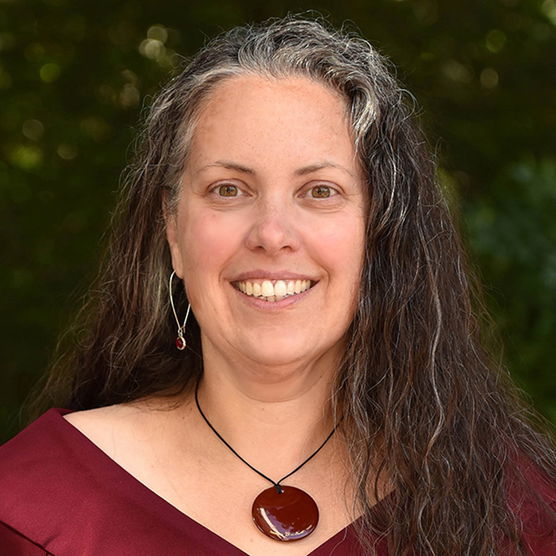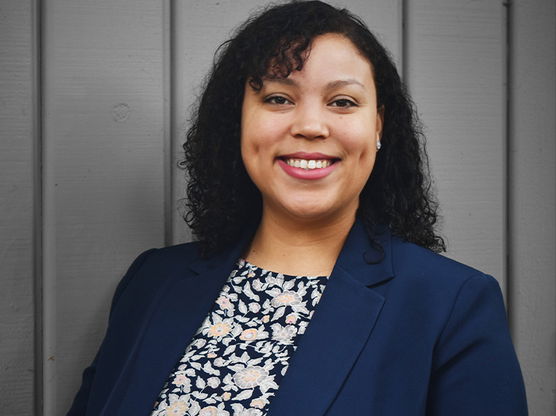Program Snapshot
- Degree Type
-
Juris Doctor
- Program Type
-
Graduate
- Credit Hours
-
90
- Time to complete
-
3 Years
- Campus
-
Salem

Student Success
Three Willamette Law students put their knowledge into action when they were selected as Immigrant Justice Fellows. These students provided legal service to immigrant communities as part of Willamette's Immigration Law Clinic.
Willamette Law’s first Oregon Immigrant Justice Fellows make an impact
Willamette Law collaborated with Innovation Law Lab, a nonprofit that advocates for immigrants and refugees, to give Alondra Duran JD '23, Rodrigo Fernandez-Ortega JD '23, and Doug Valladares JD '23 the chance to work with clients. Through the fellowship, they gained hands-on experience and had a real-world impact on people's lives.




Clinical Law Program
During the first two years of law school, students learn to “think like a lawyer.” The Clinical Law Program teaches them to “be a lawyer.” Students can choose from one of our three clinics including immigration, trusts and estates, and criminal defense.
-
Students participating in the Immigration Clinic represent clients in a variety of cases and projects that involve international law, such as customary international law or treaty law and immigration, in particular, immigration matters associated with asylum claims.
-
Trusts and Estates Clinic
Students in the Trusts and Estates Clinic represent clients requiring non-tax estate planning. Clients typically include those with minor children unable to manage property, as well as others who have adult children, are childless, or are terminally ill or elderly.
Program Values
At Willamette Law, we emphasize the critical role of law in preserving democracy and tackling pressing issues like climate change. Our curriculum integrates these strategic themes, empowering students to explore how legal frameworks can uphold democratic values and foster environmental stewardship. By studying here, you join a community dedicated to using the power of law to advocate for positive change, making significant contributions both within the Pacific Northwest and beyond.

Introducing Some of Our Faculty
The College of Law faculty has been chosen for its ability to excite, instruct and inspire. In addition to their impeccable credentials and years of law practice, the Willamette Law faculty has a deep commitment to teaching.
-
Meet Amy Meyers
Professor Amy Meyers uses her legal experience to guide students in mastering essential skills and navigating diverse licensing paths, from the Uniform Bar Exam to new alternatives like Oregon’s Supervised Practice Portfolio.

-
Meet Rohan Grey
Professor Rohan Grey’s focus is on the legal design and regulation of finance including digital fiat currencies, teaches Contracts, Business Organizations, and Securities Regulation.

-
Meet Laura Appleman
Professor Laura Appleman brings a diverse background in criminal law, criminal procedure, family law, and sentencing law and policy, with prior roles including a Ninth Circuit law clerk and New York criminal appellate public defender.

Alumni Stories
Willamette Law alumni thrive across diverse legal fields, from prestigious judicial clerkships to dynamic positions in big law—and everything in between. Equipped with essential skills, our graduates are prepared to realize their professional aspirations, no matter where they choose to practice.
-
Kristi Skalman JD’20
Preparation, particularly in legal research and writing, prepared Skalman to launch her own firm
Kristi Skalman JD’20 honed her legal skills as an attorney fellow at the Commons Law Center, focusing on trial preparation and community-based care. This experience was crucial in helping her establish her own family law practice, Vibrant Law, which prioritizes high-quality service and work-life balance.

-
Henry Harder ‘20, JD/MBA’23
Internships and Moot Court Board lead to offer to join JAG Corps
Henry Harder excelled at Willamette Law, leveraging the accelerated Law School Bound program to combine his political science studies with early law school entry and later expanding his skill set with a JD/MBA dual degree. Internships with the U.S. Army's Judge Advocate General’s Corps, combined with leadership roles in school activities like the Moot Court Board, have poised him for success.

Program Requirements
Students must complete 90 credit hours to graduate. Law school at Willamette begins with an Orientation program, followed by essential courses such as Civil Procedure, Contracts I & II, Lawyering I & II, Torts, and Property. Throughout their studies, students will also delve into Constitutional Law I & II, Criminal Law, Professional Responsibility, Evidence, Real Estate Transactions, Criminal Procedure I, and Legal Analysis for the Bar.

Admissions Information
The Juris Doctor (JD) is a three-year professional degree that is necessary for taking the bar exam and practicing law across most of the United States. Applicants to the JD program are required to have a bachelor's degree, or an equivalent degree for international applicants that is comparable to an American undergraduate bachelor's degree.

Financial Aid & Scholarships
Willamette Law recognizes both the cost and the value of a legal education. We advise students to thoroughly understand their financial outlook when choosing a law school. The Financial Aid office at Willamette University is dedicated to assisting students in navigating the financial aid process.
Willamette University’s financial stability and strategic partnerships empower the School of Law to provide robust financial aid and scholarship opportunities. All applicants are automatically evaluated for scholarships upon application. A substantial number of incoming students at Willamette Law receive scholarship awards, which are renewable as long as the recipient maintains academic good standing.

Certificate Programs
Willamette Law offers six specialty certificate programs that emphasize the unique and comprehensive training that participants complete in these areas. These programs are each offered as a way for students to realize the benefits of the Colleges Signature Strengths through a structured pathway of coursework. Students need not choose a Certificate Program, but if they are interested in pursuing a certificate, they should consult with their faculty advisor, the director of the program, or Associate Dean for Student Affairs & Administration.
-
Law & Business
The program takes an interdisciplinary approach to the study of business law. The certificate seeks to give students a firm understanding of the relationship between law and business, thereby enabling graduates to advise business clients. -
Advocacy & Dispute Resolution
The program is designed to provide students with real-world skills needed to avoid or end legal conflicts. In addition, the program provides students with curricular opportunities to develop the skills that they will need to advocate on behalf of clients both inside and outside of court. -
International Law
The program allows students to engage in an intensive study of international law, conflicts of laws, international business transactions, and private international law.
-
Law & Government
Drawing on the Willamette Law's unique connection to state government institutions, the certificate allows students to engage in an intensive study of public law. The program seeks to help students develop skills for making and influencing public law and policy. -
Environmental Law, Justice, & Sustainability
The certificate seeks to provide students with an opportunity to engage in the intensive study of environmental and natural resources law. -
Health Law
The health law certificate is designed to provide students with a rigorous and comprehensive study in the statutes, rules, and regulations affecting the health care industry. The program focuses on regulatory issues governing the daily structure and operation of the health care industry, as well as administrative law, medical malpractice, bioethics and biomedical law, health care employment matters, and criminal law and procedure.
-
Law 103 Contracts
In the first-year contracts course, students will explore the essentials of contract formation, performance, and enforcement, including mutual assent, consideration, conditions, breach, and remedies. They will also examine key doctrines such as the Statute of Frauds, third-party rights, and contract discharge mechanisms.
-
Law 109 Torts
The first-year torts course covers the spectrum of civil law remedies for personal injuries, emphasizing both intentional and unintentional wrongs. This course provides students a foundational understanding of how legal principles are applied to redress and compensate for injuries.